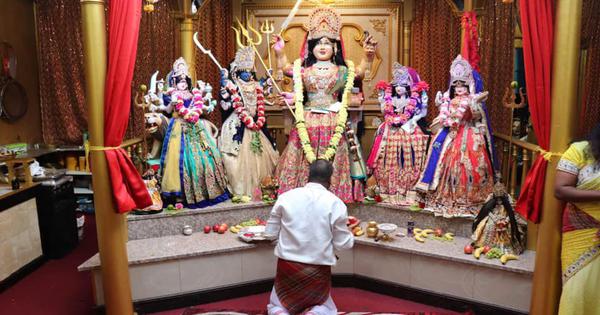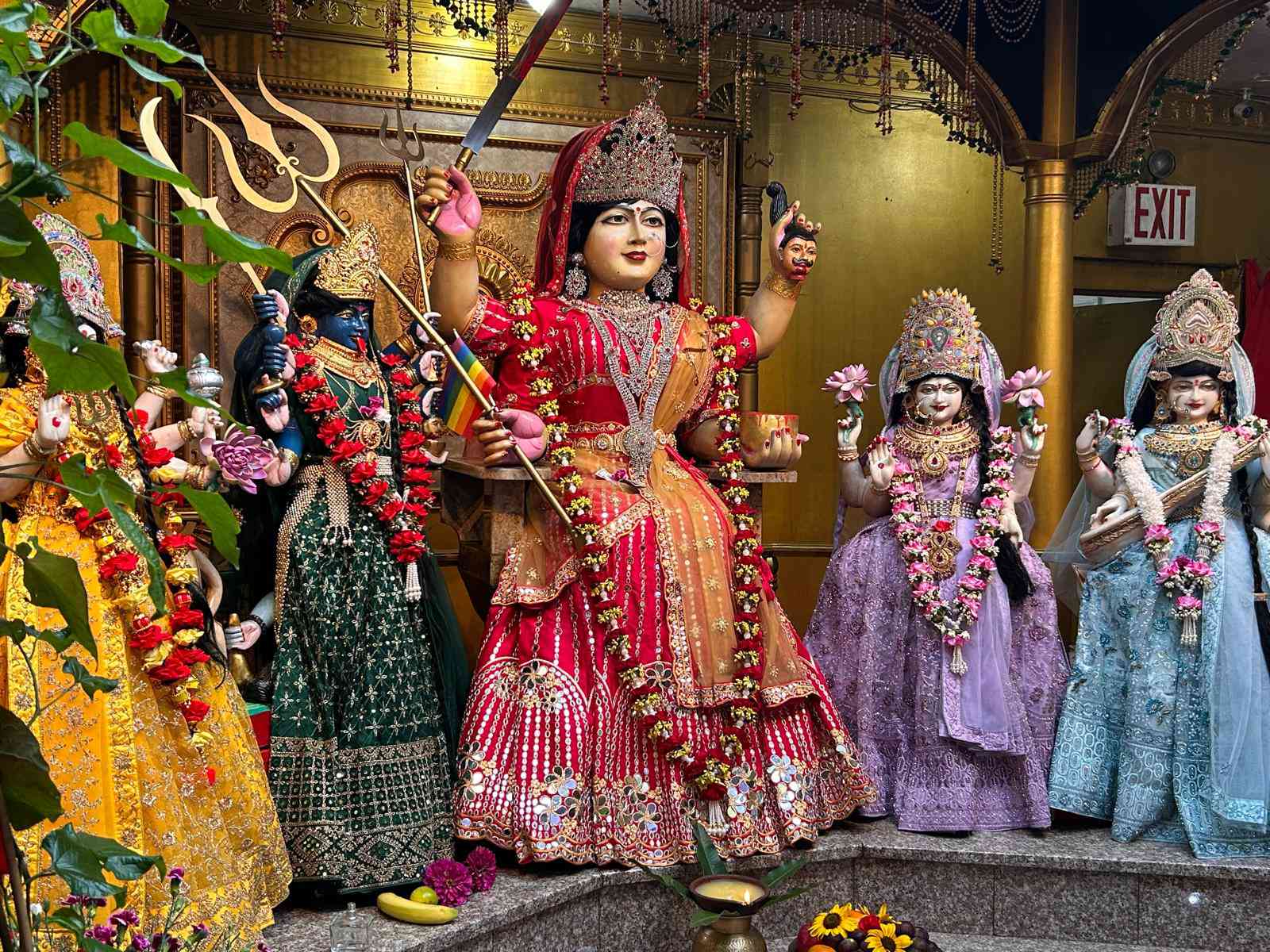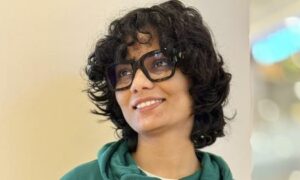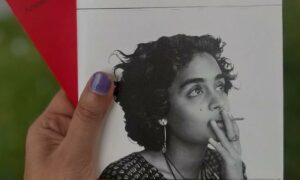
For centuries, Mariamman worship has belonged to the margins – village shrines in Tamil Nadu where families pray to the deity desperate for relief from diseases like smallpox, cholera and fever. It represents an outsider tradition: it sometimes involves blood sacrifice, spirit possession and rituals that some Hindu temple-goers frown upon.
But in a converted sewing factory on Liberty Avenue in Queens, New York, Mariamman has become the centre of what may be one of New York’s most radical Hindu spaces. The Shri Shakti Mariammaa temple serves the city’s Indo-Caribbean community, with women running the temple, conducting the ceremonies, and on one occasion, even officiating a queer marriage.
The community are descendants of Indians shipped by the British to Guyana, Trinidad and other parts of the Caribbean to work on sugarcane plantations as indentured labourers in the 19th century.
Sharda Ramsammy, who runs a commercial cleaning service in Queens, was one of 20 people who founded the temple in November 2011.
After purchasing abandoned idols from a defunct temple, they spent six months gutting the factory floor themselves, clearing decades of debris and rebuilding it into a place of worship.
“We decided that we would open our own space, but we would do things a bit differently,” Ramsammy said. “We would make the space inclusive, because nobody should be shunned from praying, from worshipping god.”
However, the temple now faces complaints from a neighbor who objects to the loud drums during worship services. After noise complaints in 2018 and again in 2024, the city’s Department of Buildings determined that the temple must register as a community space to comply with building codes.
That designation would require more than $150,000 in upgrades to electricity, plumbing, fire safety and accessibility systems.
Inside, the temple’s unique character is immediately apparent. A six-foot-tall murti of Mariamman sits under a skylight. Devotees leave offerings that would shock many traditionalists: alongside fruits and flowers are bottles of rum and cigarettes.
The temple houses a pantheon of deities: alongside Mariamman sit statues of Vedic Hindu gods such as Krishna, Ram, and Hanuman, as well as village deities like Gangama, the Earth goddess, and Madurai Viran, a warrior god from Tamil Nadu.
The temple’s calendar centres around Navratri, the nine-night festival honoring the goddess Durga. It also celebrates major Hindu festivals such as Hanuman Jayanti and Ram Navami.
When the British Empire recruited indentured laborers from India, including many from the Bhojpuri region and Tamil Nadu, these workers brought with them what the temple founders describe as two different kinds of Hinduism: the relatively mainstream Sanatani temple traditions and the rural folk practices centered on village goddesses such as Mariamman.
Hinduism became a major religion in Guyana, where it is now practiced by about a third of the population.

Over the last 15 years, the Shri Shakti Mariamma temple has become a place where women seek refuge. The temple staff have quietly offered those in need monetary help and even given them the keys to stay in the building when needed.
“Other temples would keep menstruating women out or not allow women to approach the altar,” Ramsammy said. “That’s just not something we believe in. We worship a woman.”
Indeed, several of the temple’s priests are women, a rarity in Indo-Caribbean temples. This includes Chandni Kalu, who hails from a North Indian Brahmin family but turned to Kali worship.
“There is a lot of patriarchy in Hinduism and women are not really given roles other than ones that are subservient like making prasadam in the kitchen,” Kalu said. “I was really given a platform here to become a priestess.”
Kali temples in New York remain “tucked away in basements or backyards”, said Kalu.
In the summer of 2021, a queer couple approached Ramsammy seeking a wedding venue after being turned away from several Indo-Caribbean Hindu temples in New York.
“I feel like we are an inclusive temple, we refuse no one,” Ramsammy said. “They were just two people who were looking to marry and Mariamman does not differentiate.”
She agreed to host the ceremony. The wedding was officiated by Pratima, one of the temple’s female priests,
Sunita Vishwanath, the executive director of a community group called Hindus for Human Rights who has seen many inclusive Hindu spaces in New York, said the Shakti temple stands out for its support of the LGBTQ+ community.
“It’s one of the most radical because of its open embrace of LGBTQ+ community,” Vishwanath said.
Despite the financial challenges facing them, Ramsammy remains defiant. “We are determined to fight this and save our temple,” Ramsammy said
This article first appeared on Scroll.in
📰 Crime Today News is proudly sponsored by DRYFRUIT & CO – A Brand by eFabby Global LLC
Design & Developed by Yes Mom Hosting






